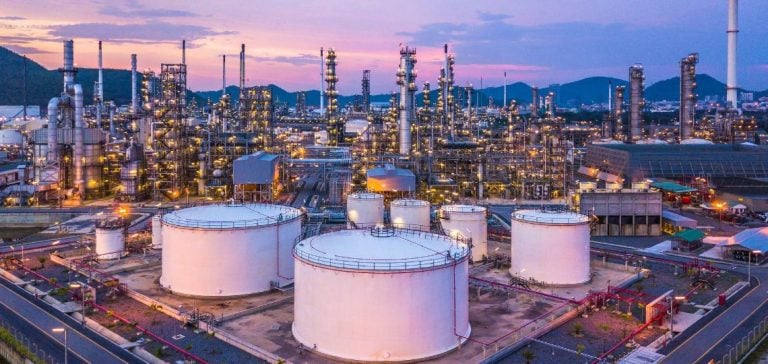The International Energy Agency (IEA) has revised down its estimates for global refinery runs due to insufficient profit margins. This revision comes amid volatility in crude oil prices and tensions in global energy markets.
In 2024, the IEA now expects refinery throughput of 82.8 million barrels per day (b/d), down 180,000 b/d from its previous estimates. For 2025, the throughput is revised to 83.4 million b/d, down 210,000 b/d. This trend reflects growing pressure on refineries, particularly in China and Europe, where margins continue to deteriorate.
Impact of Margins on Refineries
Refining margins fell further in September as the cracks between gasoline, jet fuel, and diesel prices deteriorated, despite an improvement in crude prices in a relatively tight market. This situation prompted the IEA to revise its forecasts for global refinery runs lower this year.
Reduction in China and Growth Prospects
So far this year, the IEA has cut its forecast for global runs in 2024 by 500,000 b/d, primarily driven by a reduction in Chinese throughput. However, it anticipates a rebound in Chinese throughput in 2025 with the startup of the new Yulong refinery. This greenfield refinery, with a capacity of 400,000 b/d, began trial runs at the end of August and is expected to operate at about 65% capacity during the testing phase, according to S&P Global Commodity Insights data.
Prospects for Europe
Despite the downward revisions, the IEA expects year-on-year increases in refinery runs of 540,000 b/d in 2024 and 610,000 b/d in 2025. However, the agency reiterated its estimate of a 240,000 b/d reduction in Europe in Q4, noting that further cuts are possible if margins deteriorate.
Pressure on European Refineries
Declining profits have put growing pressure on refiners, with Commodity Insights analysts reducing their Q4 2024 refinery run forecasts by 50,000 b/d due to reports of economic run cuts in Europe and elsewhere. In September, Italy’s 300,000 b/d Sarroch refinery, along with Mediterranean refiners Eni and Repsol, were reported to be trimming run rates by up to 10%, as stalling margins made heavy production volumes less attractive.
Rebound Prospects in the OECD
However, crude runs in the Organization for Economic Cooperation and Development (OECD) are expected to rebound in December following the end of seasonal maintenance, the IEA said. A host of refineries in Europe, including Germany, Lithuania, the Netherlands, and the UK, were undergoing scheduled turnarounds expected to be completed in November, according to Commodity Insights data.






















